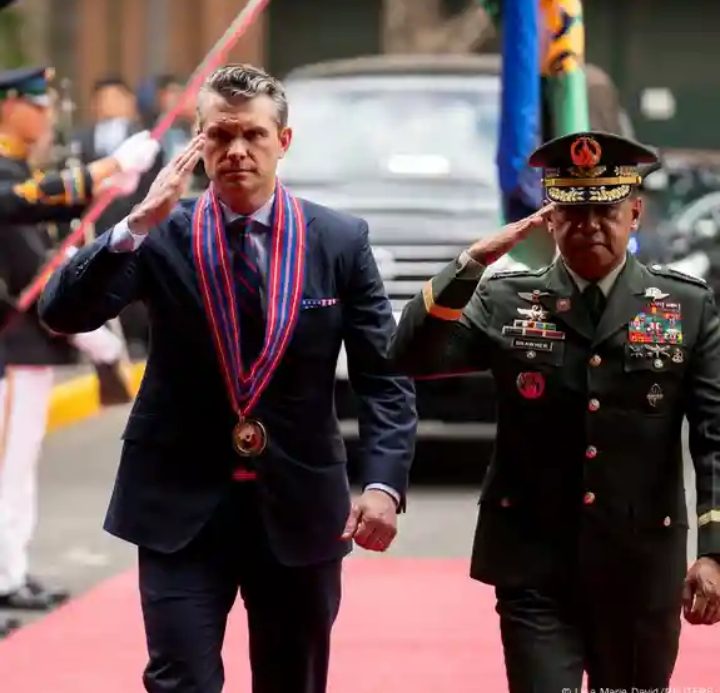The U.S. reaffirmed its strong alliance with the Philippines, emphasizing defense cooperation and regional stability amid rising tensions in the South China Sea.
U.S. Pledges 'Ironclad' Support to Philippines Amid Rising Tensions with China


United States Defense Secretary Pete Hegseth reaffirmed Washington's unwavering support for its alliance with the Philippines during a meeting with President Ferdinand Marcos Jr. in Manila on Friday.
During the talks, Hegseth emphasized the enduring importance of the mutual defense treaty signed by the two countries in 1951.
"I had a chance to speak just a few minutes ago to our president, President Trump, who sends his regards to you as well, thinks very fondly of this great country, is very committed to the alliance that we have, to the friendship that we have, the cooperation that we have," Hegseth told Marcos.
"He and I both want to express the ironclad commitment we have to the mutual defense treaty and to the partnership, economically, militarily, which our staffs have worked on diligently for weeks and weeks and months," he added.
The visit marked the first official trip to the Philippines by a senior Trump administration official and is part of Hegseth's broader Indo-Pacific tour focused on advancing regional defense ties.
Hegseth highlighted the importance of strengthening military cooperation with Manila, describing it as "mutually beneficial" and "critically important" for both countries.
Addressing the situation in the South China Sea, Hegseth emphasized the need for deterrence and collective strength in the region, citing "threats from the Communist Chinese" and underscoring that "peace through strength is a very real thing."
He acknowledged the Philippines' strong position in asserting its territorial rights, saying the country had "stood very firm" in defending its maritime claims, whether in the South China Sea or the West Philippine Sea.
Hegseth added that starting his Indo-Pacific tour in the Philippines was deliberate, calling the visit an opportunity for "deeper conversations about partnership" and praising the country's leadership as a valued U.S. ally.
Marcos called Hegseth's visit symbolic of a renewed commitment between the two allies to uphold peace and security in the Indo-Pacific.
He referred to the current geopolitical environment as "complicated" but said the two countries shared a clear roadmap for future cooperation.
Marcos called the United States "the greatest force for peace in this part of the world," especially in maintaining stability in the West Philippine Sea.
He reaffirmed that the United States remains the Philippines' only treaty ally and a vital partner in the region.
"We have always understood the principle that the greatest force for peace in this part of the world would be the United States," Marcos said. "That is why it is very important."
Formal diplomatic relations between the two countries were established in 1946, and today, their cooperation is anchored in longstanding agreements like the mutual defense treaty, a visiting forces agreement, and an enhanced defense cooperation agreement.

 বাংলা
বাংলা  Spanish
Spanish  Arabic
Arabic  French
French  Chinese
Chinese 
